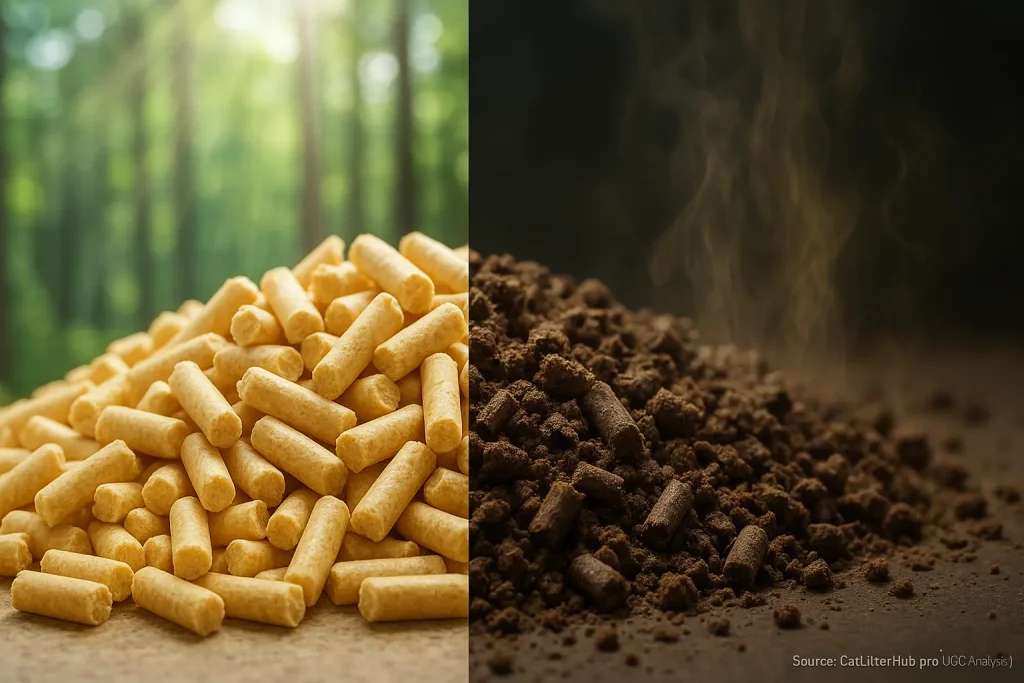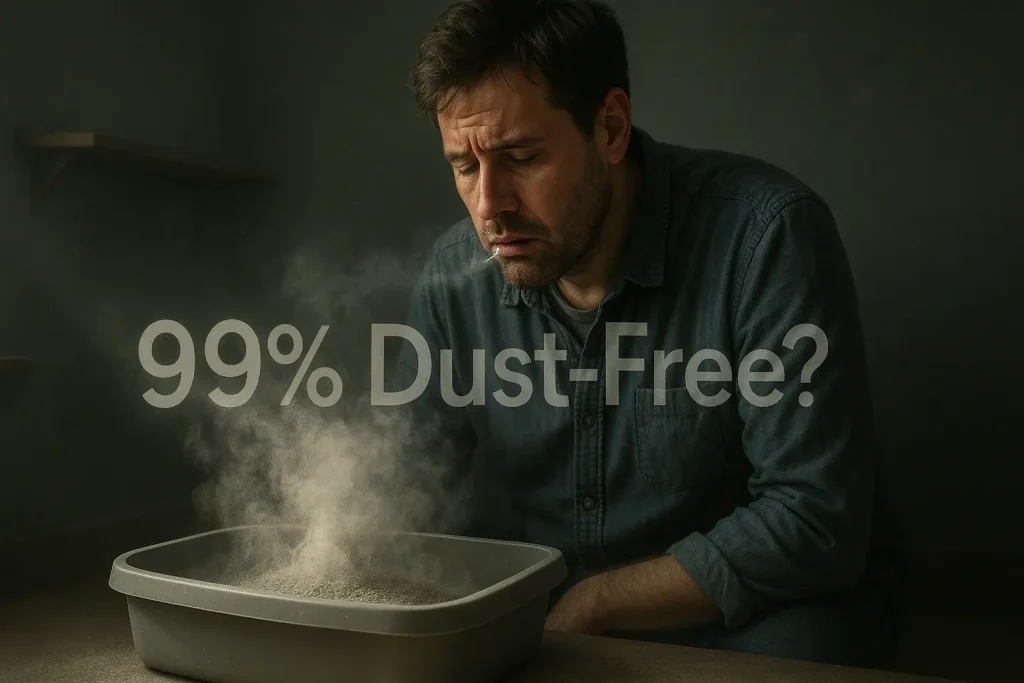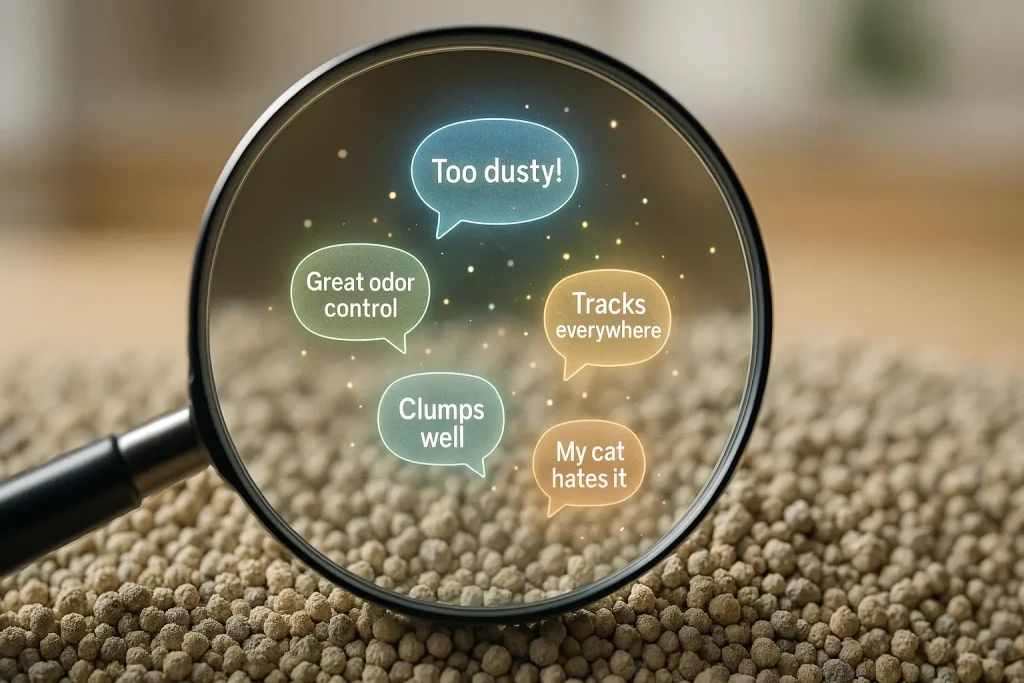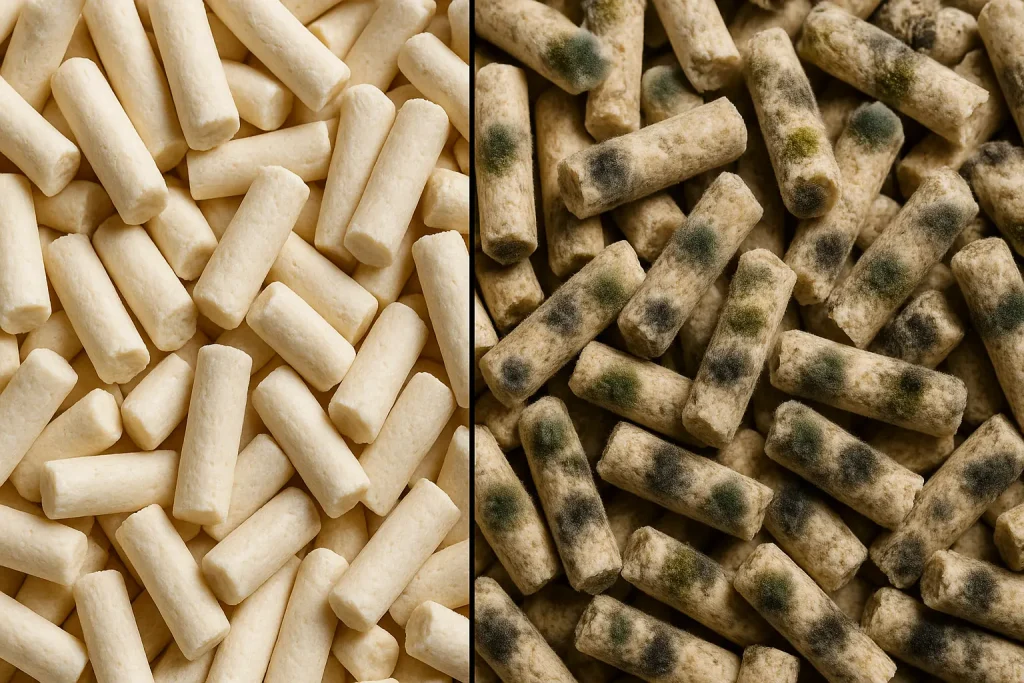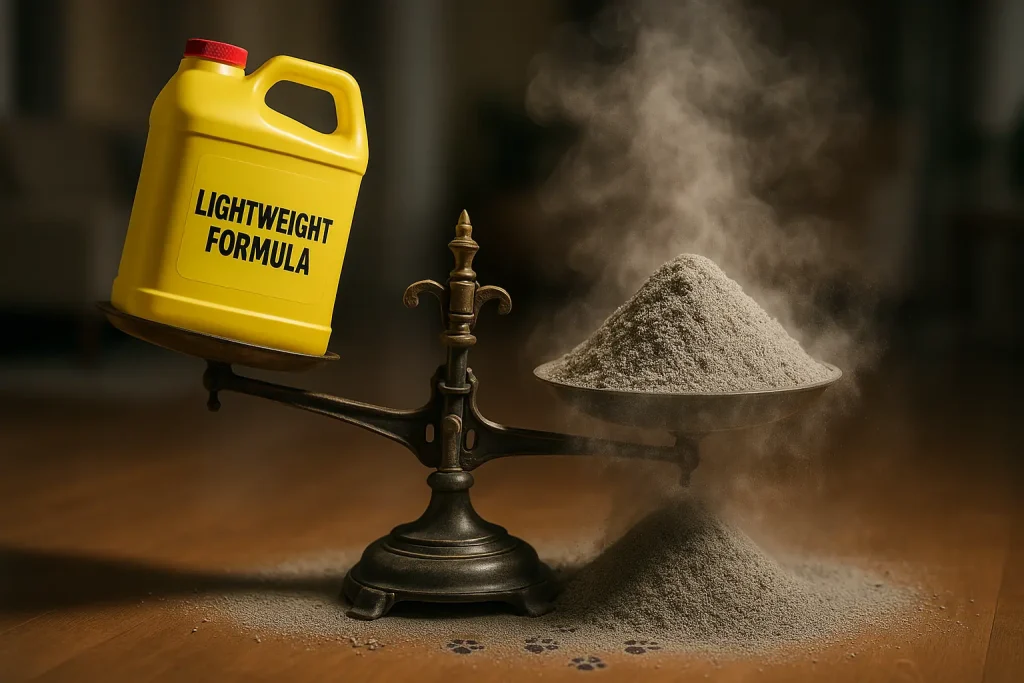The 'More is More' Trap: Why Do We Think Deeper Litter is Better?
Ever found yourself piling on extra litter, thinking it's the secret to a fresher box? You are not alone. Many cat owners instinctively believe a deeper litter layer means better odor absorption. This habit often stems from a simple hope. Picture this: it has been a long day, the litter box is... fragrant. The quick fix impulse? More litter. Many of us have been there, hoping a thicker layer will magically solve odor issues.
Those advertisements for "extra strength" or "long-lasting" litters? Litter box odor marketing can subtly plant an idea. The suggestion is that a deeper bed of litter is key to effectiveness. It is an easy mental leap for owners. If a little litter is good, more must be fantastic. This becomes one of those unspoken assumptions many cat parents make, contributing to cat litter waste.
Then there is the common hope for perfect, solid clumps. Many cat owners desire less frequent scooping. Or perhaps you are just tired of scraping that sticky mess from the pan's bottom. The temptation to add "just a bit more" litter, hoping it will form an impenetrable barrier against waste, is strong. We get it; that desire for an easier cleaning routine is completely understandable.
The Deep Litter Downside: What Cat Owners Actually Report
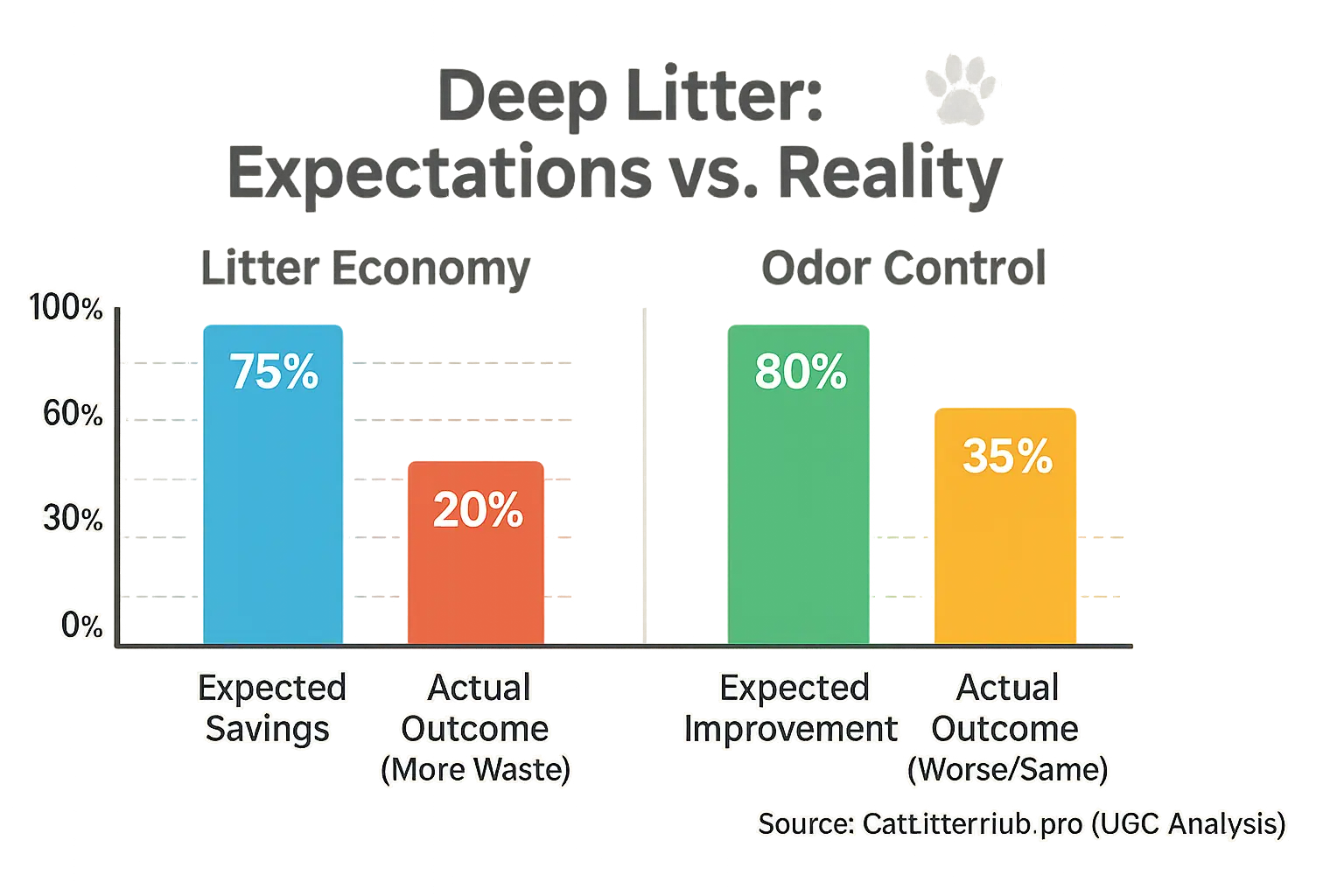
So, you piled the litter high. Problem solved? Not quite. Cat Litter Hub's deep dive into what cat owners report paints a different picture. A surprising number of users discover more litter often creates more problems, not fewer. This is a common theme emerging from thousands of shared experiences.
Think you save litter with a deeper bed? User forums present a frequent counter-narrative. Owners consistently share variations of: "I thought deeper meant cleaner for longer, but now I'm just throwing out more perfectly good litter mixed with the bad!" Cats dig. They churn clean litter with soiled. This pattern, highlighted in our analysis of community feedback, leads to more frequent full box changes. The result is increased litter consumption.
Then, the digging. Such digging. A mountain of litter invites enthusiastic excavation from certain feline personalities. Some cats appear to dig for sport, sending granules flying. The outcome? Litter everywhere but the box. Users frequently share images of their "litter-scaped" bathrooms, a testament to this widespread issue. Our review of owner complaints underscores this messy reality.
The irony? An excessive litter depth can, for some litter types, cause clumps to break apart during scooping. Buried or broken clumps contribute to worse odors over time, a problem many hope to solve with more litter. And some cats? They simply dislike wading through a very deep, shifting surface. We've seen reports of cats looking utterly bewildered by overly deep litter, with a few owners even linking it to box aversion. The consensus from user reports suggests that for many cats, more is not always better.
The Goldilocks Zone: Optimal Litter Depth for Happy Cats & Clean Boxes (UGC Guide + Tool)
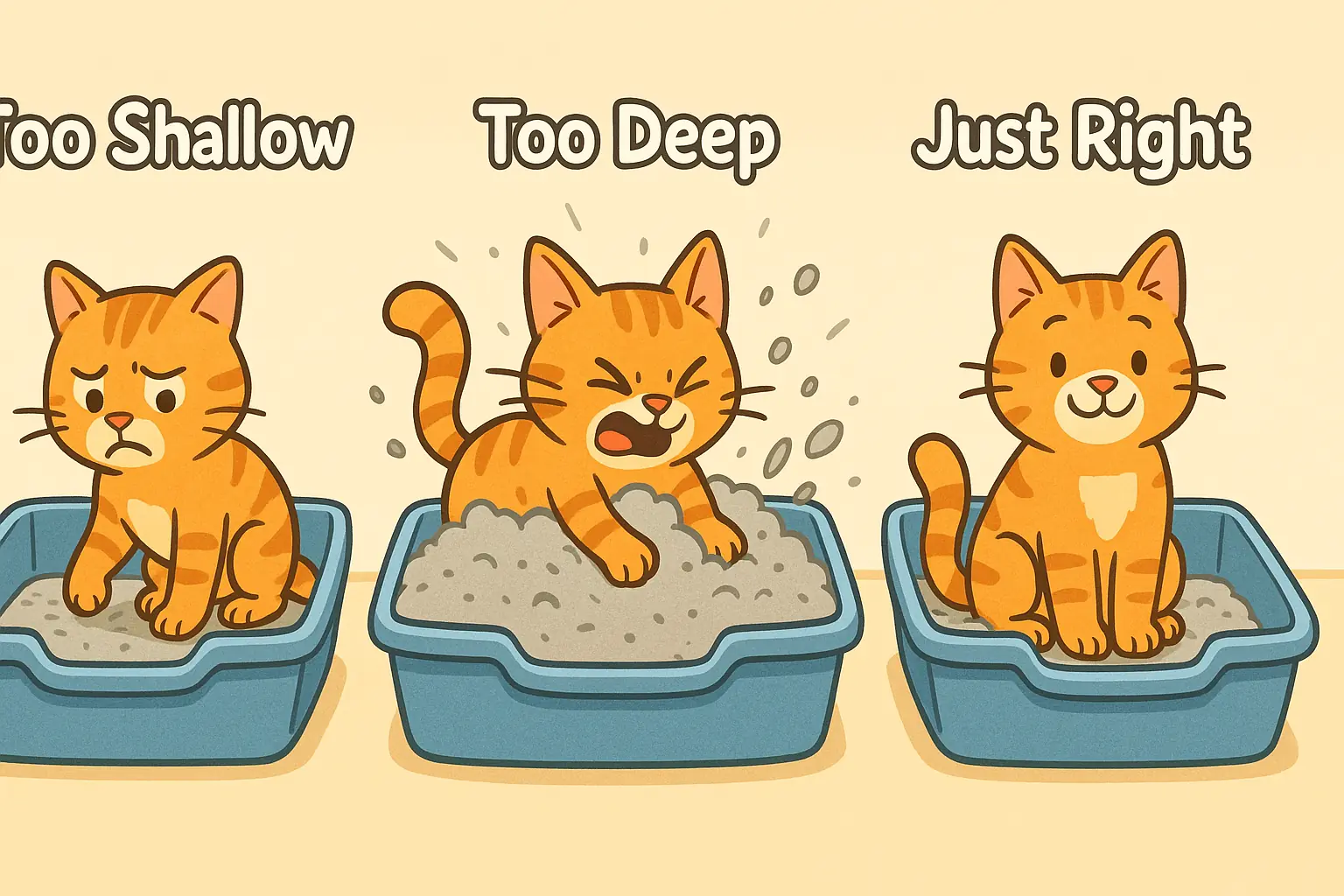
Find Your Cat's Litter Depth Sweet Spot!
Digging Style:
So, our little guide showed something important. Finding that 'just right' litter depth isn't just guesswork. It means matching the litter type. It also means considering your cat's unique style. This combined approach is what actually works. Thousands of owners report these results.
User data reveals one crucial tip. Observe your cat. They often signal if the depth is off. Their quirky behaviors are the evidence. And remember this point. Small adjustments make a huge difference. Your cat gains comfort. Your cleaning routine gets simpler.
Are you still struggling with litter box issues? Optimized depth might not be the only answer. It could be time. Explore other contributing factors.


